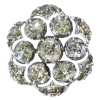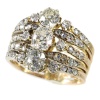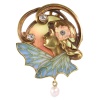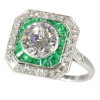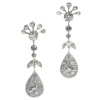Nous offrons des facilités de paiement pour le bijou de vos rêves. Demandez nous les détails. Expédition assuré gratuite !
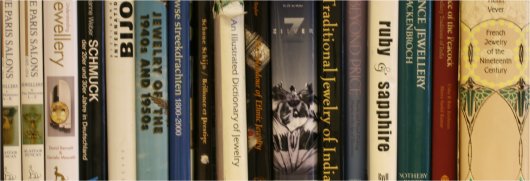
Antique jewelry glossary
Welcome to our extensive antique jewelry glossary with around 1,500 jewelry related entries.If you feel you are missing an explanation, feel free to let us know and we will add it.
A - B - C - D - E - F - G - H - I - J - K - L - M - N - O - P - Q - R - S - T - U - V - W - X - Y - Z all
Plato
Plato was born to an aristocratic family in Athens. His father, Ariston, was believed to have descended from the early kings of Athens. Perictione, his mother, was distantly related to the 6th-century BC lawmaker Solon.
When Plato was a child, his father died, and his mother married Pyrilampes, who was an associate of the statesman Pericles. As a young man Plato had political ambitions, but he became disillusioned by the political leadership in Athens. He eventually became a disciple of Socrates, accepting his basic philosophy and dialectical style of debate: the pursuit of truth through questions, answers, and additional questions.
Plato witnessed the death of Socrates at the hands of the Athenian democracy in 399 BC. Perhaps fearing for his own safety, he left Athens temporarily and traveled to Italy, Sicily, and Egypt.
In 387 Plato founded the Academy in Athens, the institution often described as the first European university. It provided a comprehensive curriculum, including such subjects as astronomy, biology, mathematics, political theory, and philosophy. Aristotle was the Academy's most prominent student.
Pursuing an opportunity to combine philosophy and practical politics, Plato went to Sicily in 367 to tutor the new ruler of Syracuse, Dionysius the Younger, in the art of philosophical rule. The experiment failed. Plato made another trip to Syracuse in 361, but again his engagement in Sicilian affairs met with little success.
The concluding years of his life were spent lecturing at the Academy and writing. He died at about the age of 80 in Athens in 348 or 347 BC.



